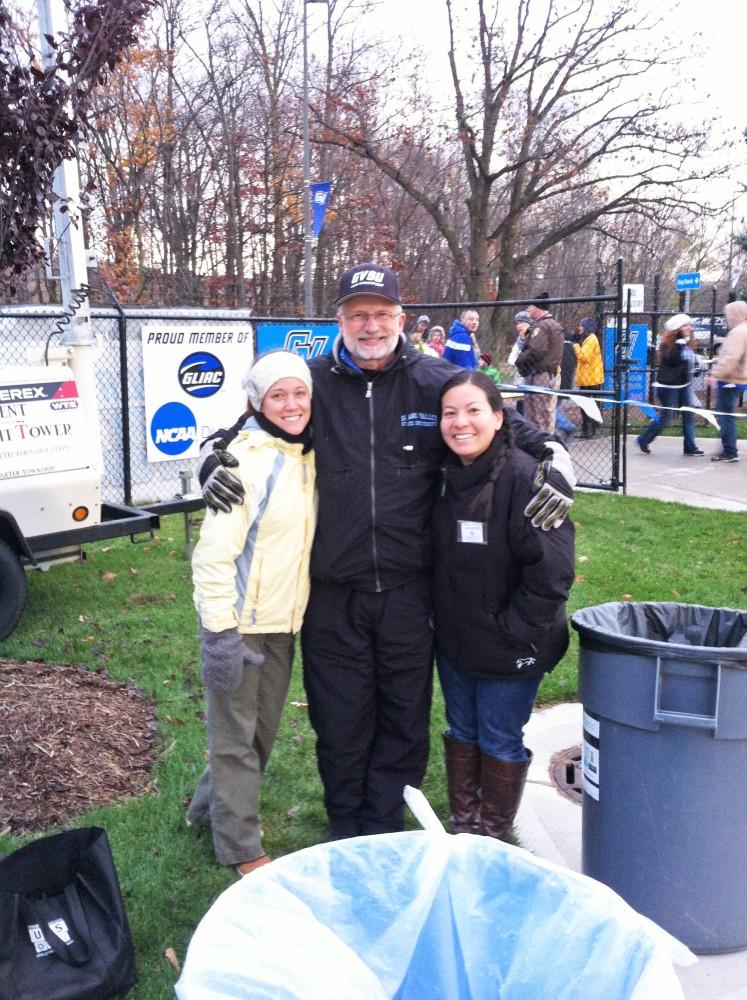Waste not

GVL / Courtesy – Kimberly Schoetzow
Nov 20, 2014
For the second year in a row at Lubbers Stadium, Grand Valley State University has worked to make every home football game zero-waste. This means that all of the trash at the game that can be recycled or composted goes to the appropriate area instead of being sent to a landfill.
This campaign was led by the office of sustainability practices, the athletics department, facilities services, the office of student life and campus dining. Overall, their efforts this season were successful.
Along the perimeter of the field, near the concession stands and in the suites and visitors boxes, there are color-coded barrels with volunteers standing nearby. This season, there were roughly 100 volunteers from various campus groups, including the PanHellenic association, the student environmental coalition, the student nursing association and the pre-professional group.
According to Kimberly Schoetzow, a graduate assistant in the office of sustainability practices, they diverted 2,255 pounds of compostable items along with 1,794 pounds of recyclables. They sent 2,004 pounds to the landfill, for an overall diversion rate of 67 percent. During the final home game of the season, they achieved the highest waste diversion record yet, at 80 percent.
Campus dining provides the concessions at Lubbers Stadium, which includes both the main stands on the north and south ends of the field and the satellite stands throughout the stadium. Deb Rambadt, who works with campus dining, said they did their part in making their products as zero-waste friendly as possible.
“Campus dining’s part in the zero waste effort include that we switched to compostable Pepsi cups and compostable lids, we worked with our popcorn supplier to package caramel corn in compostable tubs, 87 percent of stand products have compostable packaging including wrappers and we help educate customers about compostable items versus those that aren’t,” Rambadt said.
Steven Leeser is the operations supervisor for facilities services, and he thinks progress has been made in several areas this year.
“Having our volunteers lined up in advance was a big plus and an indicator of growing interest,” he said. “We added color-coded barrels with new signage that is consistent with what we have all over campus now.”
Despite their success, he also believes there are areas for improvement.
“Areas for improvement are elimination of all non-recyclable and non-compostable materials being sold at the refreshment stands and less use of non-compostable items in the suites and the top of the hill,” Lesser said.
During the 2013 home football game season, there were nearly 200 volunteers. They recycled 2,041 pounds of trash and composted another 2,011 pounds of trash. With 1,661 pounds of trash sent to the landfill, there was a 70 percent diversion rate overall.






















